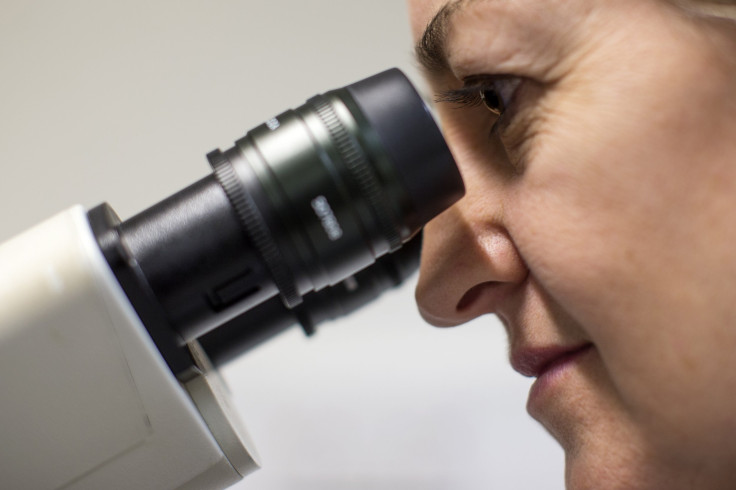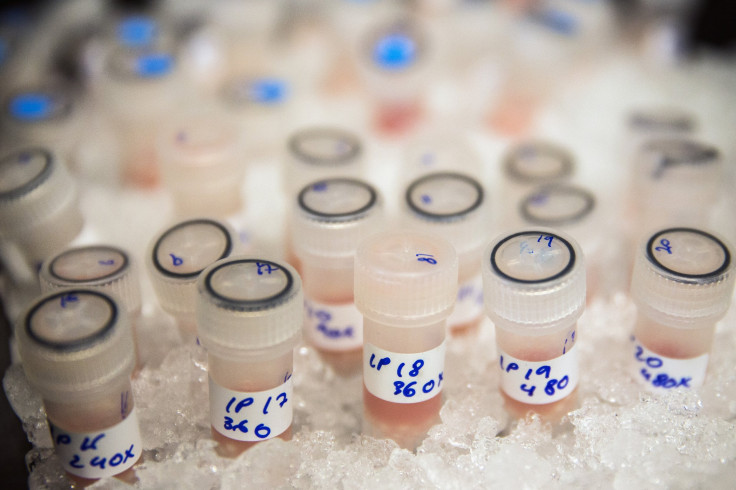Obama’s Pledge To Cure Cancer Could Be Complicated By Money, Disease’s Scope

Almost exactly 45 years ago, President Richard Nixon stood before Congress and vowed to cure cancer. "The time has come in America when the same kind of concentrated effort that split the atom and took man to the moon should be turned toward conquering this dread disease," he said during the 1971 State of the Union speech. "Let us make a total national commitment to achieve this goal."
Decades later, the president may be different, but the challenge remains the same. Scientists and oncologists have certainly made progress over the past few decades, but as President Barack Obama said Tuesday in his final State of the Union address, more research is critical "for the loved ones we’ve all lost" and "for the family we can still save."
Despite this hopeful declaration, a cancer cure has proved to be elusive. Questions abound over how it would influence the United States economy and whether finding a solution that works for the nearly 200 different types of the disease is feasible. Because American pharmaceutical companies profit from cancer drugs, critics have theorized that the healthcare industry doesn't truly want a solution, while others insist that searching for a blanket cure might be unrealistic because of the scope of the sickness.
"This disease is much more complex than we have been treating it,” Phillip Sharp, a professor at the Massachusetts Institute of Technology, told Time in 2013. “And the complexity is stunning.”

As of 2014, more than 14 million people who have or had cancer were living in the U.S. About 1.6 million new cases were estimated to be diagnosed in 2015 alone, while about 600,000 patients were expected to die from the illness.
One of last year's most high-profile cancer deaths was that of the 46-year-old son of Vice President Joe Biden — Beau Biden, who passed away from brain cancer in May. Accordingly, Obama Tuesday put the vice president in charge of the new federal push for a cure. Biden later revealed his plan of attack: increase resources to fight cancer, and "bring all the cancer fighters together — to work together, share information and end cancer as we know it."
In 2009, the most recent year for which data were available, the overall cost of cancer in the U.S. was about $216.6 billion — $86.6 billion in health expenditures plus $130 billion for the lost productivity due to premature death, according to the National Institutes of Health. But unfounded internet allegations persist that while the U.S. would have a lighter financial burden should cancer be cured, pharmaceutical companies would lose revenue.
Consumers spend about $37 billion every year on cancer drugs and therapies. Four of the seven American drugs that cost more than $100,000 annually treat cancer, according to the American Society of Clinical Oncology. And though many pharmaceutical companies offer medicine at low costs to patients who can't afford them, Reuters reported last year that American corporations sometimes charge up to 600 times more for certain drugs than what it costs to produce them. Companies have also been criticized for not focusing their research on prevention.
"If there is a cure for cancer — say, a vaccine — well, that would be the end of this cash flow stream," cancer cure advocate Linda Zercoe, who has battle five types of the disease, wrote on her blog, The Cancerian, in 2013. "Is there any reason why the pharmaceutical industry would want to find the magic-bullet drug?"
Another facet of the cancer cure concept is the difficulty of finding one solution to the more than 200 types of the illness. The most common cancers are breast, lung and prostate, but even addressing those can be perplexing.
"Cancer is hundreds, if not thousands, of different diseases," David Weinstock, an assistant professor with the Dana-Farber Cancer Institute and Harvard Medical School, told Gizmodo in 2012. "Saying, 'Why don't we have a cure to cancer?' is like saying, 'Why don't we have a cure to infection?'"
For a while, research was limited by technology, with genome sequencing taking years and billions of dollars to complete. But now one of the most pressing issues is simply how involved cancer is. For example, cancer cells change over time and differ even inside the same kind of cancer, which makes them hard to study, the Jackson Laboratory, a nonprofit biomedical research center based in Bar Harbor, Maine, noted in a blog post last year. Dr. Wendy Baer, the medical director of psychiatric oncology at the Winship Cancer Institute of Emory University in Atlanta, wrote on WebMD that too many questions remain about how the environment influences the illness.
Biden, however, seems determined to make substantial progress soon. As the scientific community expands its capabilities and knowledge, the future could be getting brighter.
"This is our moon shot," the vice president said Wednesday in a statement. "I know that we can help solidify a genuine global commitment to end cancer as we know it today — and inspire a new generation of scientists to pursue new discoveries and the bounds of human endeavor."
© Copyright IBTimes 2024. All rights reserved.






















